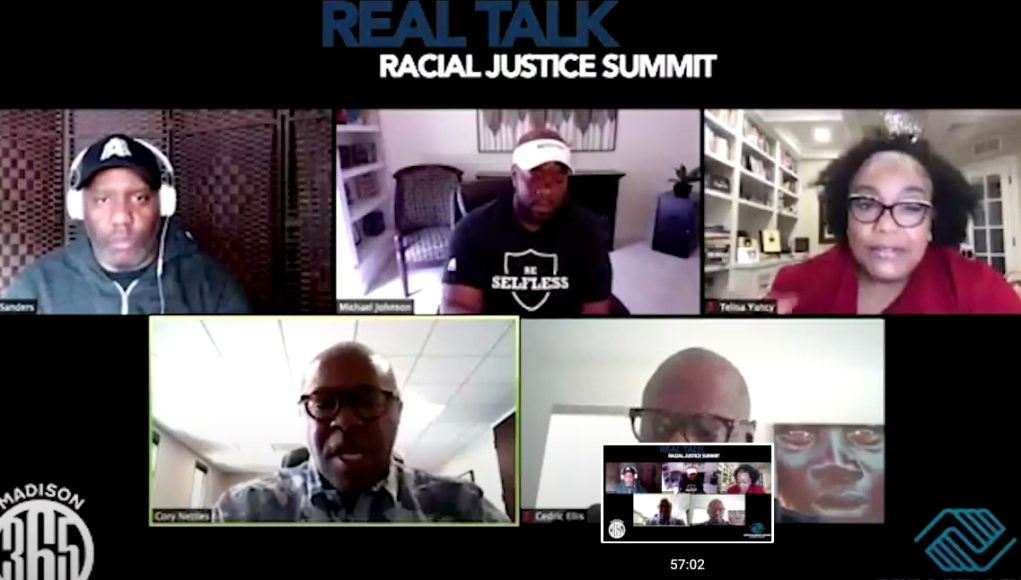Corporate leaders in Wisconsin joined Madison365 on June 5 as part of its daylong Real Talk Virtual Summit on Racial Justice June 5. It was one of many panel discussions taking on difficult issues from a variety of perspectives.
The summit was an opportunity for community leaders to discuss policy, criminal justice, community building and more in the context of social justice and recent protests nationwide.
During this segment of the summit, called the “Corporate Leaders and Racial Justice,” the discussion centered on the responsibility of corporate leaders including diversity recruitment and retainment; financial giving and how white allies can not rely on Black employees to solve those problems.
The speakers were Cory L. Nettles, the founder and managing director of Generation Growth Capital; Telisa Yancy, chief operating officer of American Family and Cedric Ellis, executive vice president and chief enterprise officer at CUNA Mutual Group. The moderator was Madison365 Publisher and CEO Henry Sanders. Sanders started the conversation off by saying how rare it is to have these panelist together; who each have diverse backgrounds in entrepreneurship, education and corporate leadership.
In Wisconsin, there are more than 432,000 businesses, according to the 2012 census.
A third of our time in America is spent at work,” Yancy said. “If the corporations can get it right I’ve got a good feeling that the society can follow along.”
The three leaders discussed different ways to bring diverse leaders to the corporate table.
Nettles said corporations need to use metrics to decide how they are doing in terms of diversity, he said if you don’t measure it, it doesn’t count.
“If we are pushing change in the organizations and in the organizations where we are influencing things you’ve got to have measurements to hold yourself accountable and hold your organization accountable,” Nettles said. “I can’t tell how many times at my organizations we’ve got all these values, mission statements and all that kinda stuff — and it is all like mom and apple pie kinda stuff like who can be against. Then you look at the 3, 5, 10 years later and you have to say what has actually changed. So much of my conversation is what are the metrics in which we can hold ourselves accountable and see if we have made change over this period of time.”
Telisa said leaders need to look at who is on their team and ask oneself where their responsibility lies. She said there is a self-narrative of acceptability as African American leaders, that they must work harder, longer, better and more efficiently.
“Sometimes we worry about putting only the most qualified, only the most pedigree, people who have been through all the hoops and sat in all the chairs,” Yancy said. Because we know how fragile these roles could be for us and for no other reason other than you run into the wrong person who has got some issues around what you look like and how we fit into our larger society. It takes us to reframe our own mind to say we don’t have to be harder on ourselves than we already are.”
Ellis said when he first started at CUNA he was the head of human resources — and he described the power that role had.
“I took the license to test and challenge some of the things we put in place,” Ellis said. “But I also use our own words against us — we have a set of values and every single time policy decisions are being made I always force us to go back there. Are we honoring these values? Are we extending a wide enough net to make sure we are being inclusive? Who is at the table? I’ve been really intentional about speaking truth to power, really calling the organization on it. And in a quiet way reaching into other seniors leaders in the organization to get their allyship – to get them to speak up more, to get them to take action.”




























